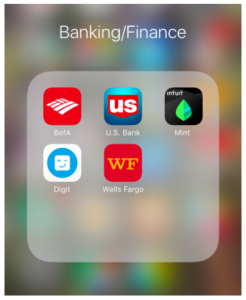When customers sign up for financial applications, whether they are mobile wallets, banking applications or personal finance apps, they are handing over a significant amount of highly sensitive information. People want the convenience these applications provide, but they are wary about how their personal information will be used, and how safe their data is within the application. Two-thirds of consumers with bank accounts are concerned about data privacy when they use third-party applications for money-related tasks and FinTech companies would be wise to validate these concerns and take steps now to build consumer trust.
The Risks of Third-Party Finance Apps
For a financial or payment app to provide the benefits a customer is looking for, that application needs bank data. This typically means handing over bank login credentials which can immediately raise red flags with consumers. What will the app do with that login? How will it be kept safe? What is the app doing with the information it finds there? Who is responsible if there is a hack? These are all very valid concerns in today’s market, and they are concerns that FinTech companies should take seriously.
How FinTech Firms Can Address Data Privacy
In the wake of Facebook’s data privacy scandal during the 2016 presidential election, people are becoming more tuned in to the way applications use their data – especially free and low-cost applications. In order to win trust, FinTech firms can take several approaches:
- Innovate: Look for ways to provide customers with what they are looking for without asking them to hand over their bank login information.
- Ask customers what they want: Customers want to feel in control, and there is no greater way to provide them with that control than to ask them directly what they want from you. Surveys and focus groups can help FinTechs get a feel for what consumers want in terms of data privacy and security.
- Partner with security experts: What better way to show a potential customer you care about their security than to recommend password protection through a password manager, for example?
- Be transparent: Not all users are savvy enough to understand their personal data may be sold to other companies. You may offer disclosures, but most people don’t read them. Trust can be built by committing to transparency and being upfront if customer data is to be shared.
 In the wake of GDPR, more and more companies are focused on data privacy, and the U.S. won’t be too far behind in developing standards of its own. FinTech companies would be wise to start building trust and goodwill so they are prepared for eventual legislation that will dictate tighter controls.
In the wake of GDPR, more and more companies are focused on data privacy, and the U.S. won’t be too far behind in developing standards of its own. FinTech companies would be wise to start building trust and goodwill so they are prepared for eventual legislation that will dictate tighter controls.
FinTech and Payment Systems companies should look at protecting consumer data as an opportunity, rather than a burden. Building trust today can pay dividends in the future. If you are looking for FinTech and Payments pros who can help your firm take advantage of new opportunities to earn new customers, contact the expert recruiters at MoneyTech Search today.

